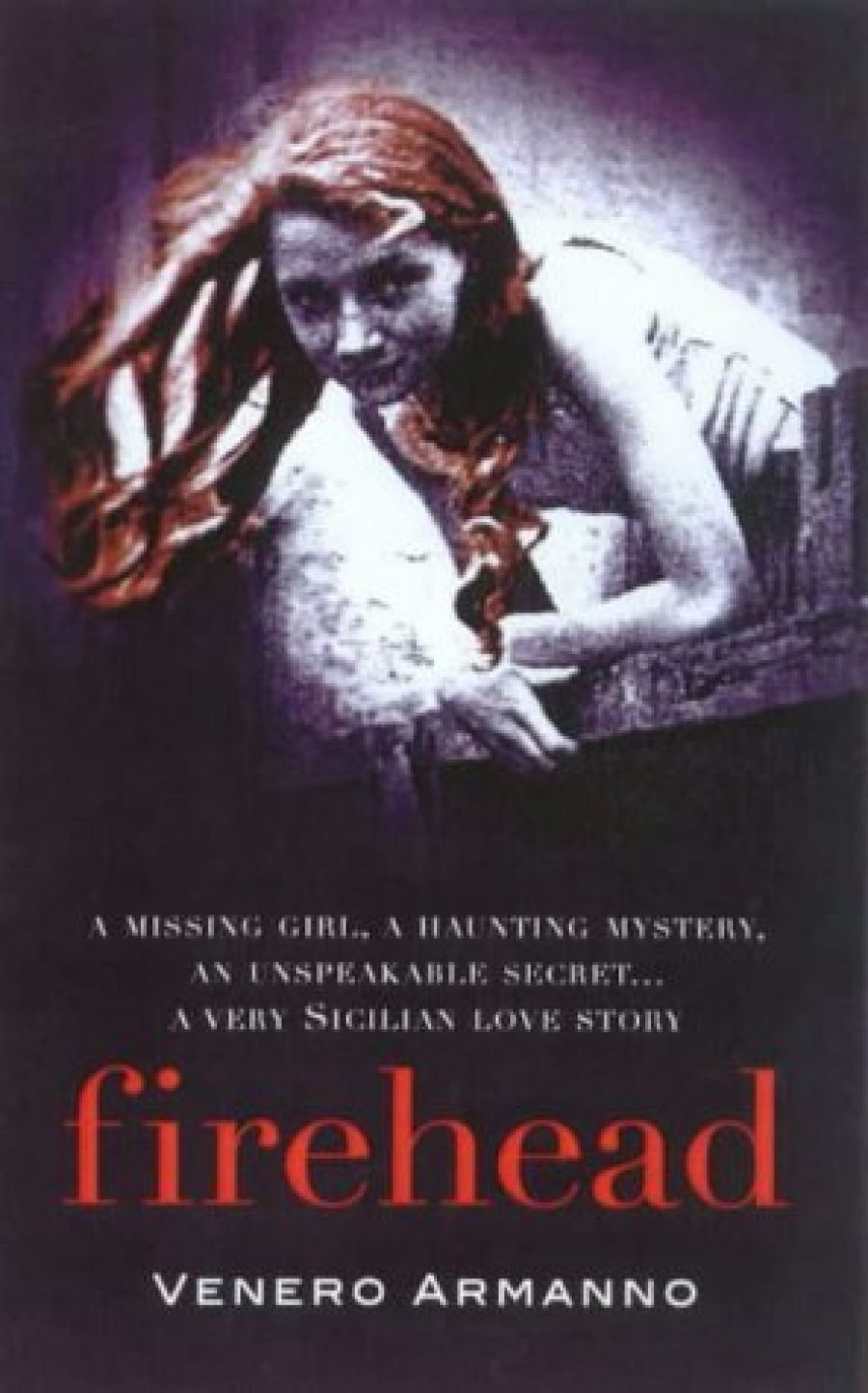
- Free Article: No
- Contents Category: Fiction
- Review Article: Yes
- Custom Highlight Text:
Publicists obviously rack their brains for innovative ways to promote their books: new novels have come equipped with bookmarks, balloons, and boxes of matches (Rosie Scott’s Lives on Fire), and six pages of variegated hype is not uncommon for a book targeted as a future best-seller. Random House, however, have recently come up with a format that is genuinely useful to reviewers: a neat, double-sided fold that incorporates – instead of the insistent ‘marketing points’ and the publicist’s puff picking out all the best quotes and rendering them instantly second-hand – a summary of the plot, a couple of style-bytes, and an interview in which the author discusses the genesis of the novel.
- Book 1 Title: Firehead
- Book 1 Biblio: Random House, $22.95 pb, 402pp, 0 0918 3992
The two examples I’ve seen so far have both given me insights into the authors’ intentions and filled me with interest in and enthusiasm for their respective books, but since it happened that in each case I had read the novel before I read the interview, I will never know whether this background might have positioned me to read the books more positively. This is particularly an issue with Venero Armanno’s new novel, for the interest and enthusiasm engendered by the author’s comments (and by Armanno’s earlier work, particularly the atmospheric thriller Strange Rain) were quite at odds with my response to the novel itself – indeed, came hard on the heels of resentment over the waste of a week that could have been better devoted to reading almost anything else.
Described as ‘a very Sicilian love story’, Firehead begins in 1975, when fourteen-year-old Gabriella Zazo and her family, fresh out from Sicily, move in next door to Sam Capistrano in Brisbane’s migrant enclave of New Farm. Sam is destined to be obsessed with Gabriella Zazo for the next twenty years, captivated by her wild, red-haired Irish-Sicilian beauty, tantalised by her adolescent sexuality, by the kisses that she barters for caramels and tangerines, bemused by her relationship with the bizarre octogenarian grandfather she leads around like a shambling bear, and eventually haunted by her mysterious and total disappearance at a shared seminal moment in their young lives.
The book takes soundings at ten-year intervals and is criss-crossed with memories of Gabriella and excerpts from her diary. ‘Gabriella’s Book of Fire’ is a repository for Gabriella’s confessions and dreams, and for her grandfather’s tales of his youth in Sicily. It is ostensibly where Gabriella practises her chosen craft of writing, but in fact it simply records other strands of story, another viewpoint: Gabriella’s pubescent yearnings instead of Sam’s, intimations of stresses in her life of which Sam has no idea, and there is little tonal or stylistic difference between the diary and the rest of the novel.
At twenty-five Sam is the amiably feckless minor partner in a nightclub, more committed to music and women and authentic Sicilian cooking than to business. The nightclub, previously the site of a seedy brothel and of Gabriella’s vanishing, is under the protection of the local policeman, once the devoted mentor of his local Sicilian community, now taking his cut like everybody else – until he and the nightclub fall foul of the 1980s Fitzgerald Inquiry into police corruption.
At thirty-five Sam is a committed family man, running the restaurant that is the latest metamorphosis of the brothel/nightclub and juggling the contented reality of a wife and two little daughters with fantasies of what might have been – the old obsession with a fourteen-year-old sweetheart, the unfinished business of twenty years ago – as revelations about Gabriella come unexpectedly to light.
Schematically, thematically it all sounds fine, so what’s my problem? Perhaps the major one is that it all stays schematic. Sam tells me that he has built up walls that women will have to knock down, that there is ‘chaos behind those walls’, but I see no evidence of either. Sam is dedicated to his own slow mental processes, to his long-winded recipes (how has authentic ethnic food come to be so much the business of the novel?), to a navel-gazing that is tedious in the extreme. Perhaps male readers will identify more readily with his gentle fumbling sexual awakening, with the self-conscious build-up of vignettes involving predatory old nonno, with the contrived connections between characters and section headings (Blood: 1985). Basically I am not moved to care what choices Sam makes, and while Gabriella is a more engaging character, and curiosity about her fate propelled me more rapidly through the last hundred pages of the book, her role in the plot necessarily distances her for much of the novel.
The publicist lauds ‘lyrical memories of childhood love’, but for every paragraph of lyricism there are twenty of pedestrian detail like this description of a cup of coffee rendered tasteless by expectation and stress: ‘It was like stone or rock or gravel that had been whizzed in a great blender and made into a thick and ugly liquid, and it had all the flavour of dirt.’ The publicist also records that Hollywood has shown an interest in the novel and indeed shorn of its lumpen prose and dressed in its lush Brisbane ambience of corruption and decay it could make a wonderful B-grade movie: perhaps then Venero Armanno would make a lot of money and I could stop feeling bad about finding his book so boring.


Comments powered by CComment